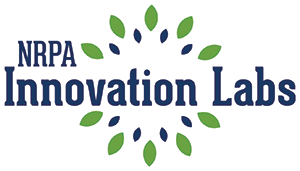
"The arc of the moral universe is long, but it bends towards justice."
- Dr. Martin Luther King, Jr.
 Two weeks ago, a number of urban park leaders from around the country gathered in Portland to discuss a topic that is front and center in our public life: racial equity. Why Portland, a predominantly white city, you ask? Because their city and parks department, like an increasing number of cities and parks departments, has recognized that addressing racial disparities in any number of outcomes — from educational achievement to job creation, to the provision of critical community infrastructure like parks and recreation centers — is the single largest equity challenge facing their increasingly diverse city. In fact, one in five Portlanders is foreign-born and over half of the students in Portland Public Schools are students of color.
Two weeks ago, a number of urban park leaders from around the country gathered in Portland to discuss a topic that is front and center in our public life: racial equity. Why Portland, a predominantly white city, you ask? Because their city and parks department, like an increasing number of cities and parks departments, has recognized that addressing racial disparities in any number of outcomes — from educational achievement to job creation, to the provision of critical community infrastructure like parks and recreation centers — is the single largest equity challenge facing their increasingly diverse city. In fact, one in five Portlanders is foreign-born and over half of the students in Portland Public Schools are students of color.
We heard from national experts, including NRPA Board Member Leon Andrews from the National League of Cities Race, Equity and Leadership (REAL) initiative, and all attendees took part in a fantastic, interactive workshop with Andrews, Nora Liu from the Government Alliance on Race and Equity, and Michelle Kellogg from the Minneapolis Parks and Recreation Board. Their workshop covered why and how we normalize discussions on race and then operationalize a racial equity strategy. We also heard from City Commissioner Amanda Fritz, Parks Director Mike Abbate and others in Portland on the journey their city is taking to create more equitable outcomes.
We saw firsthand how the parks department is working with community members to create new parks and better target their programming in underserved communities. For example, the city's Parks for New Portlanders program was designed specifically to provide recreation opportunities for communities of color, new immigrants and refugees. Also, Portland's Parks, Race and Ethnicity Project (PREP) helps measure who is accessing Portland Parks and Recreation programs and allows them to measure who they might be missing.
I came away feeling optimistic about the willingness of our industry to play a leading role in making a more racially just country. I participated in and overheard conversations about race unfold that probably wouldn't have happened outside of this event, and I felt fortunate to participate in them. Unearthing uncomfortable realities about race through honest talk is just the first step for us as an industry — it's what we do with that knowledge to prove our mettle.
To paraphrase one of our speakers "better outcomes for people of color means better outcomes for all." If we have better parks and programs in all our neighborhoods, not just in rich neighborhoods, our whole community benefits. As leaders, it's time we start looking at solutions for doing our part to create more equitable outcomes. Join NRPA in having the conversation on racial disparities and shaping outcomes in our country. Let's roll up our sleeves and start making the change we want to see in the world.
Learn more about this NRPA Innovation Lab and check out these articles and tools that highlight the work happening around the country:
- How Cities Can Advance Racial Equity Through Community Conversations
- How Cities Are Ending Unintentional Racial Discrimination
- Webinar: How to Address Racial Inequities in Your City
- Why It Sucks to Play 'Pokemon Go' If You Don't Live in a White Neighborhood
- For AfricanAmericans, Park Access Is About More Than Just Proximity

